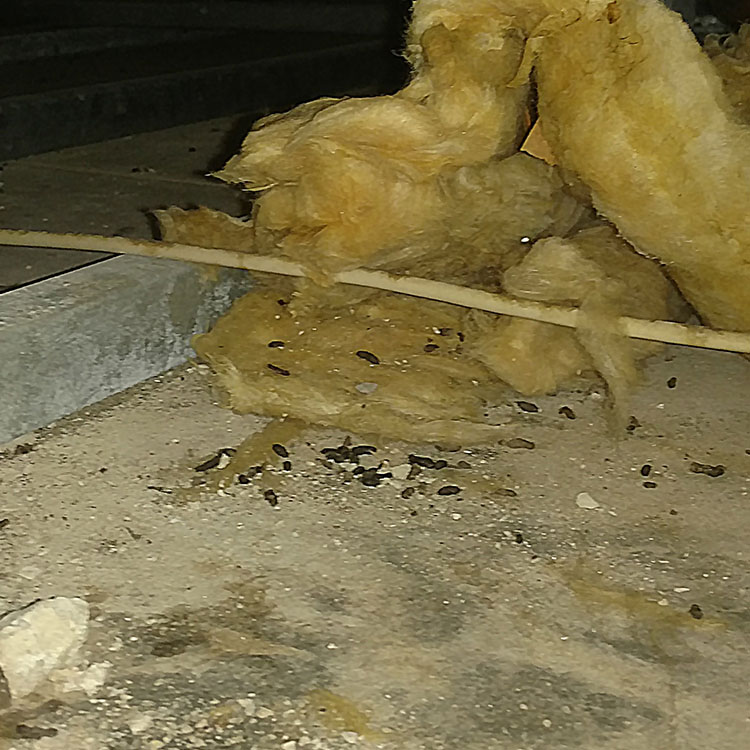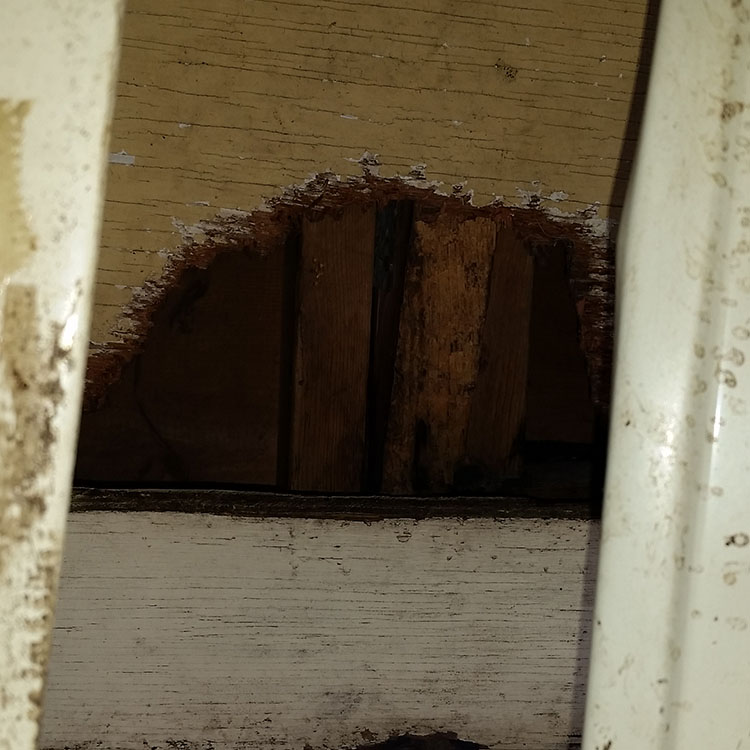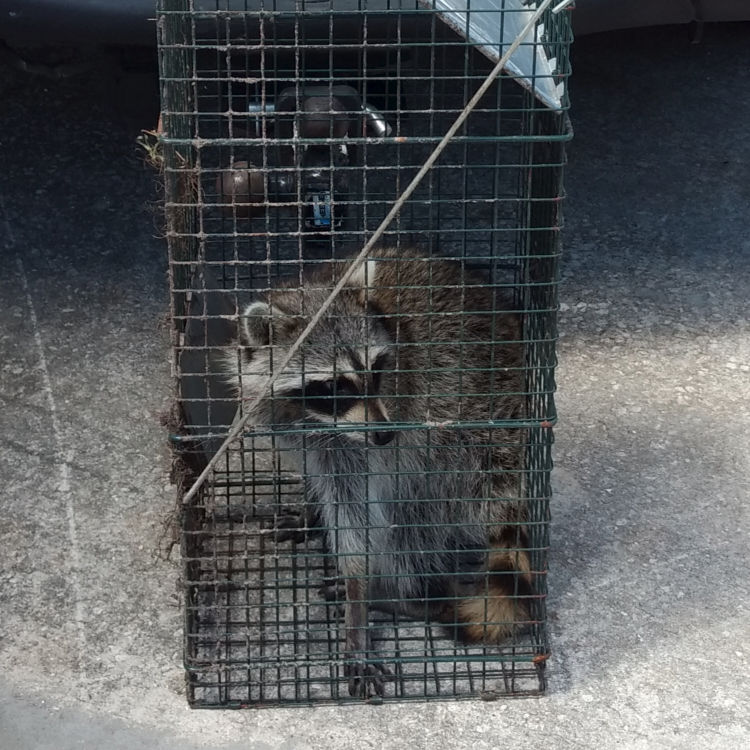Raccoon Trapping & Removal
In this Article
Raccoon Inspection
Raccoons can be extremely destructive to your home. They are intelligent creatures and are able to fit into almost any environment, making raccoon removal difficult. If left alone, groups of raccoons will thrive in smaller, non-urban settings, eating almost any food that is readily available. Garbage bins without lids, pet food that is left outside or in a garage, and even fruit trees are sources of food for raccoons. It is much more difficult to keep raccoons from coming near your home if there is plenty of food available for these animals. A professional wildlife control services company can do an inspection to see where the raccoons are living and find out what they are eating, so they can determine the how to get rid of raccoons near your home.

Raccoon Urine & Droppings
Like most nuisance wildlife, raccoons will leave behind dirt, droppings, and raccoon urine that can contain bacteria and pose dangers to your health. Any waste left behind by raccoons should be removed as soon as possible. We have a raccoon feces guide if are having trouble determining whether or not the feces in your attic or around your home belongs to raccoons.
Common places to find raccoon feces include attics, crawlspaces underneath homes, and in/around pool areas. If you have screening around your pool, it is a good idea to keep screen doors closed and mend any damage to it to keep raccoons out. If you find raccoon poop in the pool or on the pool deck, take caution in removing it and sterilizing the area to prevent disease.

Raccoon Damage
Electrical wires, air conditioning ductwork, vinyl siding, and many other crucial parts of your home can be damaged by raccoons. Damage caused by raccoons is not just limited to what they tear, chew, and scratch. Raccoon excrement and liquid waste can also cause damage to drywall and insulation, and will need to be replaced during the sanitation process that follows removal.
Raccoons & Pest Control
Insects and other pests can enter your home in search of raccoon feces and nests. Once the area where the raccoons made their home is vacated and sterilized, these pests may still linger in your home. It is a good idea to handle raccoon pest control while trapping or excluding raccoons from your home.
Trapping Raccoons
Only trained technicians from a licensed and insured wildlife removal service should perform raccoon trapping. Our technicians take special care to abide by all laws governing raccoon removal, and bring trapped raccoons to wildlife preserves and sanctuaries where wildlife officials can release them back into the wild. To perform a proper trapping, you'll need to know what bait to use for raccoons, have a safe and humane trapping device, and know where you can take the raccoon once it is trapped.

DIY Raccoon Removal
Like most nuisance wildlife, raccoons don't respond to gimmicks like raccoon repellent or anti-raccoon sprays. Most of our customers come to us after spending countless dollars and hours trying to remove raccoons themselves. We always recommend hiring a raccoon removal professional because most consumer products won't keep raccoons away like a live exclusion or trapping will.
If you have your mind set on taking care of your raccoon problem yourself, please read our raccoon trapping tips and make sure that you follow all local and state guidelines. In most states, it is illegal to transport a raccoon once you have it trapped. Usually, a fish and wildlife control representative or licensed professional will have to remove it from your property once you have it trapped. There are also strict local guidelines for how to kill a raccoon, especially if you are tring to get rid of them in a residential area.
Raccoons in Your Home
A common spot for outdoor animals to nest in your home is in the attic. If you have raccoons in the attic of your home, you will likely hear scratching on your roof at night, and find damage to your soffit or roof vents where these creatures have entered your attic. Like bats and rats, you can also find raccoons in the chimney from time to time. We highly advise against lighting a fire to remove any wildlife from a chimney, as that can cause the animals to rush downward and into your home.
